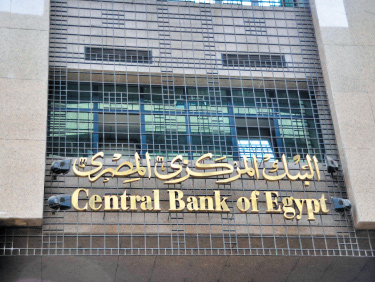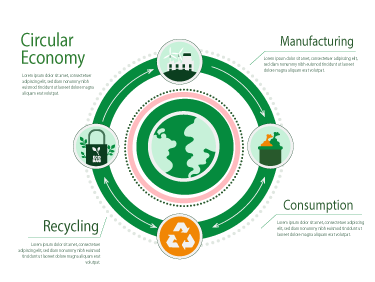-
HC Brokerage issued their update about Egypt’s real estate sector shedding the light on Palm Hills Development performance and maintaining the Overweight rating.
- Sales and construction pace are picking up despite pandemic difficulties; we positively view coastal expansions and new key management figures
- We expect collections of EGP54.5bn over 3Q21—2030 against CAPEX spending of EGP27.7bn
- We reduce our TP c26% to EGP2.82/share and maintain our Overweight rating as we account for the settlement of Botanica; stock is trading slightly below par value at a 2021e P/NAV of 0.45x
Mariam Elsaadany, real estate analyst at HC Brokerage commented that: “ Healthy sales growth and project expansion: We continue to see solid sales figures as the sector gradually recovers from the pandemic’s impact. In the future, we expect the real estate sector’s performance to pick up from current levels aided by the Central Bank of Egypt’s (CBE) new EGP50bn middle-income mortgage finance initiative at a declining 8% interest rate. The price ceiling of units in the initiative has been revised upward to EGP2.50/unit, and it can now finance units not registered at notary offices provided that the beneficiary can provide alternative collateral to the mortgage lender, as per the most recent amendments to the initiative. We see that PHD could benefit from the amendments to the initiative given its sizeable ready-to-move inventory. Developers have been reporting impressive pre-sales figures with Talaat Moustafa Group Holding (TMGH EY), Emaar Misr (EMFD EY), and SODIC (OCDI EY), all exceeding our FY20 pre-sales forecasts by c9%, c29% and c2%, respectively and by 4.1x, c27%, and 2.1x in 1H21. Palm Hills Developments (PHD) has been no exception, reporting healthy pre-sales numbers, aided by project expansion. In FY20, it slightly exceeded the EGP12.0bn pre-sales revised target and gave FY21 a big boost with a strong 1H21, with the company currently expecting pre-sales to increase c17% y-o-y in FY21 EGP15.0bn. Construction pace has also gained momentum with EGP2.50bn expected in CAPEX in 2021, c67% higher y-o-y as it plans to deliver 1,450 units and any excess going to its ready-to-move inventory with a value of around EGP3.2bn as of 2Q21. We also positively perceive PHD’s recent agreement with Taaleem Management Services (TALM EY Equity) to establish a university in Badya and the expected 3Q21 delivery of residential units in the project. Given the recent change in management entailing the hiring of two co-CEOs and managing directors in May, we would not be surprised by strategic changes taking place in the company towards the end of the year, in our view. According to its chairman, decisions related to the company’s securitization program, the sale of Botanica land, and available financing options are open to reassessment by the new management team. In terms of expansions, new projects will likely be in coastal cities as management has noticed a pickup in demand in second homes since the pandemic and seeks to capitalize on it. PHD is currently working on finalizing a 0.57m sqm North Coast revenue-share project with Hassan Allam, having already launched Hacienda West, which will add more North Coast inventory. On a less positive note, some c58% of PHD’s FY2021—26e sellable inventory is in Badya, which increases the company’s concentration risk, in our view. Also, in our opinion, Badya faces competition from Orascom Development Egypt’s (ORHD EY, Overweight, TP EGP8.21/share) O West project in terms of location and pricing.”
“ We expect collections of EGP54.5bn over 3Q21–2030e against CAPEX spending of EGP27.7bn; reflecting positively on PHD’s balance sheet: Our EGP49.6bn of expected real-estate revenue recognized over 3Q21–31e includes EGP15.9bn of existing backlog, as we continue to account for only the launched phases of Badya in our forecasts, given that the project is only c5% sold. Our numbers point to an average future gross profit margin of c48% with total costs of EGP26.1bn. We expect new net contracted sales of EGP43.0bn over 3Q21–24e, which is reduced to EGP31.4bn when adjusted to PHD’s stakes in revenue-sharing projects, Badya, Palm Hills New Cairo (PHNC), Hacienda West, and Capital Gardens. We expect PHD to sell some 9,793 units over the same period, with PHNC accounting for c22%, Palm Hills Alexandria c20% and Capital Gardens c18%, and the remaining sales of the launched areas in Badya to account for c13%. Our numbers point to CAPEX spending of EGP27.7bn over 3Q21–2030e and collections of EGP54.5bn extending to 2030e. For deliveries, we expect the company to deliver 16,398 units over 3Q21–2028e. PHD is targeting EGP2.5bn worth of securitization transactions in 2021, of which it already closed an EGP1.20bn transaction in June. We estimate the company’s net debt/equity to drop to 0.37x by 2021e and to 0.25x by 2022e as its balance sheet improves due to good collections, better cash flow management, and especially in light of the low-interest-rate environment, in our view. The management is targeting to close 2021 with cash flow from operations of EGP2.00bn while we are estimating EGP1.49bn. It also targets a net debt figure of EGP1.50bn or less, while we estimate its net debt (excluding land liabilities) to reach EGP1.36bn by the end of 2021 (excluding the recently secured facility of EGP2.50bn for PHNC).” Mariam El Saadany added
The real estate analyst at HC concluded her update on PHD stating that: “We reduce our SOTP TP for PHD by c26% to EGP2.82/share and maintain our Overweight rating: Our sum-of-the-parts (SOTP) target price is lower as our model now captures the settlement on Botanica, our assumption of selling the plot as raw land over 5 years and using an average selling price of EGP2,000/sqm. This follows shareholder approval to return 50% of Botanica land (2.96m sqm) to the government and holding on to the remaining area, in addition to 1.47m sqm under registration. We only include the registered areas of 2.69m sqm as the sale of the plot yield a value of EGP1.09/share, on our estimates. We continue to include only launched areas of the Badya project in our numbers and add Hacienda West to our forecasts given its recent launch. We exclude the company’s 205-feddan West Cairo revenue-share project as PHD’s revenue-share has been revised downward to 20% from 40%. We value PHD’s real estate and hospitality businesses using a DCF methodology, which we lowered by c31% to EGP1.82/share, despite adding the company’s Ain Sokhna project, Laguna Bay, and Hacienda West in our numbers, mainly due to the extension in the collection period. The sale of Botanica and excluding PHD’s 5m sqm land bank in Saudi Arabia (we remove on lack of visibility) reduces our land valuation by c33% to EGP1.69/share. We use a 5-year moving WACC of 16.2% with a 5-year average pre-tax T-bill rate of 11.7% and a beta of 1.199. PHD’s net debt represents a negative EGP0.70/share as of 2Q21. This sums up to a target price of EGP2.82/share (down by c26% from our previous target price of EGP3.79/share adjusted to the recent capital reduction). This puts the company on a 2021e P/NAV of 0.67x (NAVPS of EGP4.22) and implies a c47% potential return over the 5 October closing price of EGP1.92/share. Therefore, we maintain our Overweight rating. In our view, the market continues to undervalue PHD’s land bank, especially after the Botanica settlement, pricing it at EGP770/sqm, which is a c53% discount to the market-implied land value of EGP1,643/sqm, on our calculations. The company trades at a 2021e P/NAV of 0.45x, and 0.42x for 2022e, and a PER of 6.82x for 2021e and 6.34x for 2022e. PHD has also announced a five-year dividend policy (which we are not accounting for in our numbers), and also announced a share buyback program as it bought 2.47% of the company as treasury shares of which it terminated 36.3m shares in June.”










